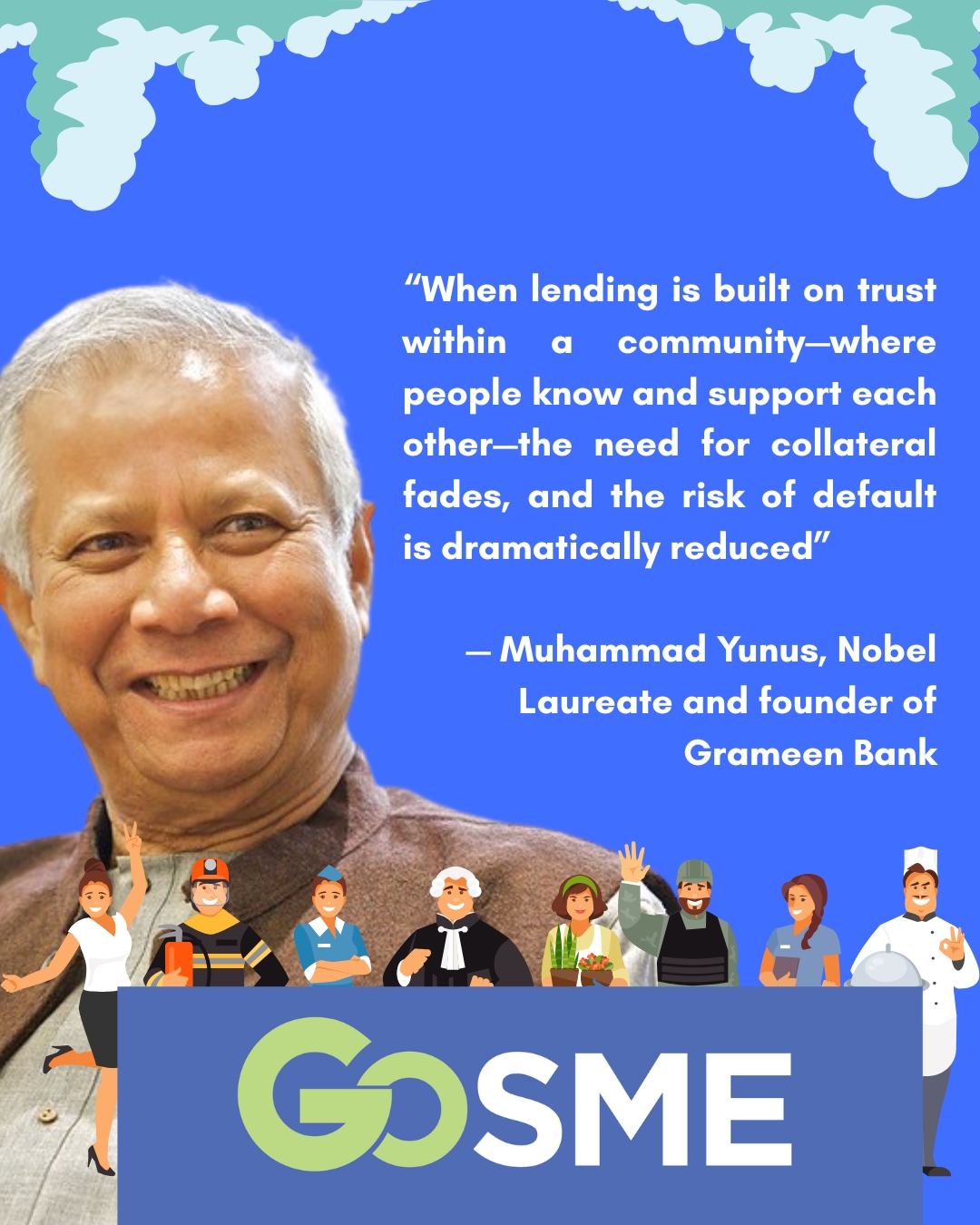
In an age where branding, community networks, and transparency can be quantified and broadcasted online, small businesses have a fresh opportunity to attract investors — not by hiding their weaknesses, but by putting their story, values, and reputation front and centre.
In the late 1970s, Professor Muhammad Yunus identified a key flaw in the financial system: banks were unwilling to lend to the poor, not because they were unworthy, but because they lacked collateral. His response was the now-famous Grameen Bank, which flipped the model. Instead of relying on property, balance sheets, or guarantees, Yunus based lending on trust, reputation, and social accountability within a community.
Borrowers were grouped in small circles, where each member’s repayment affected the group’s access to future loans. The system worked. Repayment rates soared. Women used the microloans to start businesses, feed their families, and build local economies — all without traditional collateral.
The key lesson? Community trust has economic value.
Fast-forward to today, and we find small businesses — especially SMEs in emerging markets or creative sectors — facing similar struggles. Many:
• Don’t own significant assets
• Lack recurring revenue
• Are founder-driven and at an early stage
• Operate without formal governance or IP protections
When investors conduct due diligence, they often look for:
• Financial health (revenues, margins)
• Assets and inventory
• Business systems and scalability
• IP or defensible market positions
• Exit potential
This is a high bar for SMEs that may be promising but not yet profitable or structured. As a result, many small businesses fall into the “missing middle” — too big for microloans, too small or risky for venture capital or bank loans.
The Grameen model teaches us that there is another way. If trust and accountability can create a bank for the poor, can brand and community reputation serve as the new collateral for modern SMEs?
Investors don’t just need strong returns — they need predictability and trust. If SMEs can’t offer traditional safeguards, they can reduce perceived risk in other ways. Here’s how:
a) Transparency Builds Investor Confidence
Openness about a company’s strategy, team, customer base, and even its limitations creates credibility. Rather than hide behind jargon or inflated metrics, SMEs that explain their business models clearly signal that they are mature, self-aware, and coachable.
This might include:
• Honest founder stories
• Clear declarations of goals and challenges
• Testimonials from clients or partners
Transparency removes the guesswork for investors. It replaces uncertainty with clarity — and that lowers risk.
b) Brand Reputation Functions as Collateral
In many industries, the brand is the business. A loyal customer base, cultural relevance, distinctive visual identity, and consistent messaging create powerful emotional and economic value. Strong brands often have:
• Built-in customer trust
• Word-of-mouth marketing
• High retention and pricing power
A small business might not have hard assets — but if it has a recognisable brand and customer love, that brand is its collateral.
Even better if the brand is legally protected through:
• Trademarks
• Registered domain names
• Consistent brand guidelines
Brand-backed businesses are more attractive to investors who want scalable, defendable assets — especially in sectors like food, beauty, retail, education, or tech.
c) Community Validation Offers Social Proof
Just like Grameen relied on peer groups to reduce default risk, today’s SMEs can leverage:
• Online reviews
• Social media engagement
• Endorsements from respected figures
• Community support through events or collaborations
These signals are the modern-day equivalent of village group accountability. They show investors that the business is seen, supported, and trusted by its ecosystem — making it less likely to fail in isolation.
SMEs don’t need to be locked out of funding just because they lack traditional assets or financial history. By embracing transparency, investing in brand identity, and leaning into community ecosystems, they can attract investors who believe in long-term, trust-based value. Platforms like GoSME are making this vision a reality — one business story at a time.
And just like Muhammad Yunus proved with Grameen, where trust flows, capital follows.

